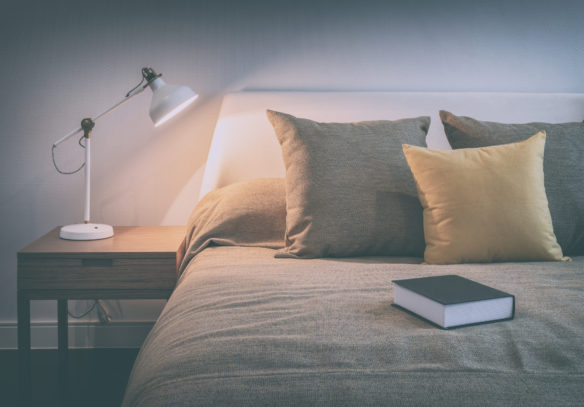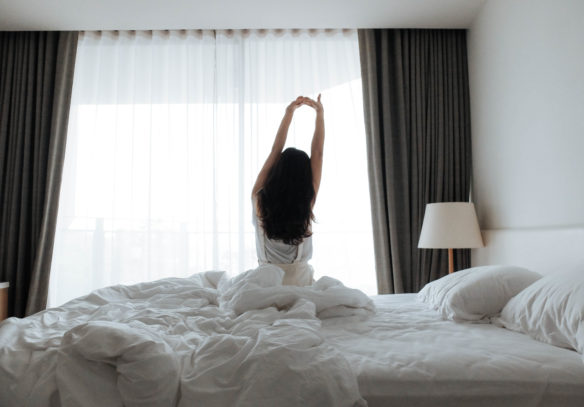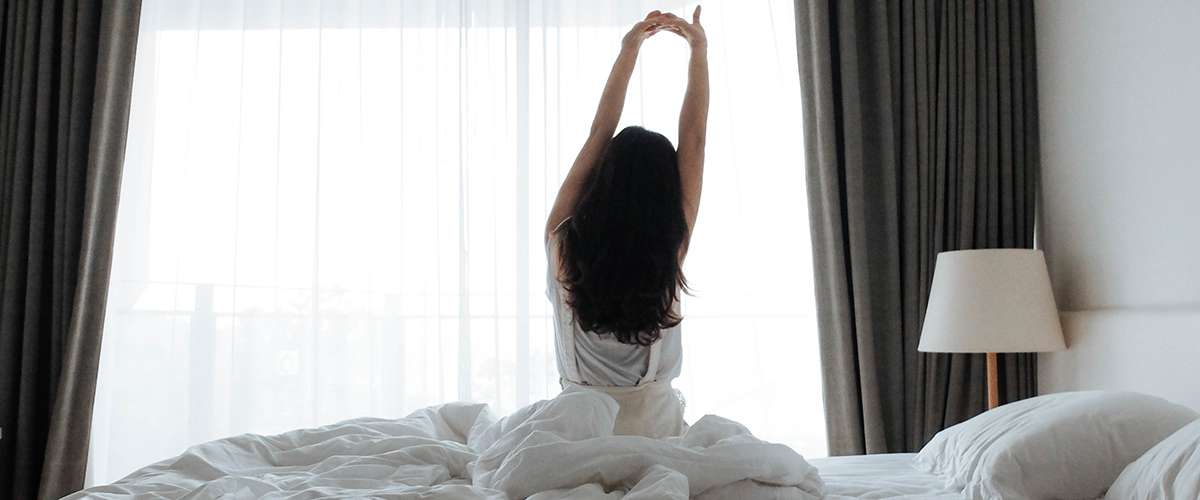Sleep. If only we appreciated it when we were kids! As adults, we know it’s important, yet it’s sometimes the first thing to go when we’re busy. But adequate sleep does more than help us stay awake during the day. Enough sleep – seven to ninehours for most people, according to experts – contributes to less depression, better focus, and a positive impact on stress hormones, our immune system and our metabolism.

While we might not always get enough hours of z’s, there are things we can do to improve the quality of our sleep. Here are some tips:
1. Stick to a regular bed and wake time. Yes, even on weekends. Even though it feels great to sleep in, sleeping late just a few days a week can disrupt regular sleep patterns. Regular sleep hours lead to better sleep and more energy, so do your best to keep your sleep time consistent.
2. Turn off your e-things. Light from electronics may disrupt sleep. In fact, our circadian rhythm (our body’s internal clock) may be especially sensitive to blue light, which is the kind given off by electronics like computers and cell phones. This light delays the release of melatonin, the hormone that helps control our sleep-wake cycles, so experts suggest turning off electronics at least an hour before bed.
3. Keep your room dark. Even when we turn the lights off, light from streetlamps, porch lights and electronics can still brighten our bedrooms. Artificial light after sundown can tell our brains it’s time to wake up, making it more difficult to get a good night’s rest. Use low-wattage bulbs in your bedside lamps and consider minimizing other sources of light with blackout curtains or by turning down the brightness on your alarm clock. You can even try a sleep mask – it might take some getting used to, but it’s a simple and inexpensive way to achieve darkness.

4. Avoid caffeine before bed. While caffeine can give us a welcomed energy boost during the day, it can give us an unwelcomed boost at night. Avoid caffeine in the hours before bed so you can sleep better. If you choose to consume caffeine, do so in moderation and only early in the day to help keep your energy level more stable and allow you to still sleep at night.
5. Avoid alcohol before bed. While alcohol makes us feel drowsy and even helps us fall asleep, it actually makes it more difficult for us to sleep. We don’t sleep as deeply or continuously through the night after consuming alcohol, so finish your adult beverage a few hours before bedtime.
6. Establish a pre–bedtime routine. Sticking to a routine can help improve your sleep, too. Some people enjoy a hot shower or bath, or drinking herbal tea, reading, or meditating.

7. Regulate your bedroom temperature. Sleep experts recommend keeping bedrooms to a temperature of about 65 degrees for the best sleep. We can keep our homes cooler in the summer by closing the blinds and curtains during the day. Then, as the outside temperature cools in the evening, open your windows and let a cross breeze through your bedroom while you sleep. You can also try a ceiling fan, or a box fan in the window set to blow warm air out.
8. If you eat before bed, eat lightly. Avoid fatty, fried or spicy foods just before bed, and don’t eat a heavy meal, either. These foods can make it more difficult to sleep, so stick to lighter snacks if you need something before bed.
Note: Since everyone’s health history and nutritional needs are so different, please make sure that you talk with your doctor and a registered dietitian to get advice about the diet and exercise plan that‘s right for you.

